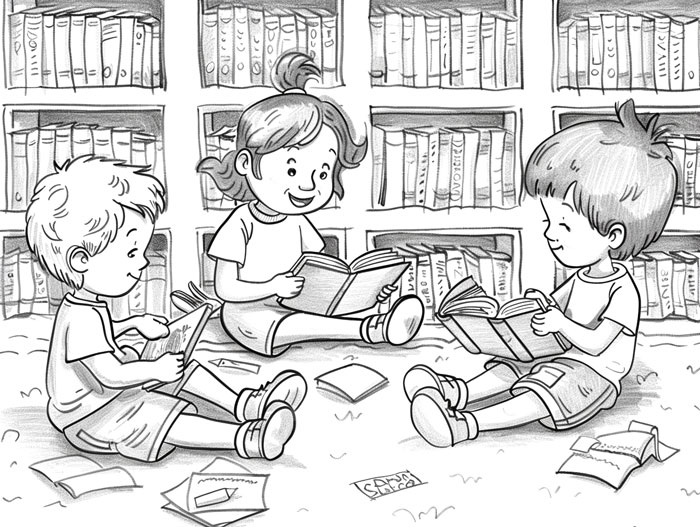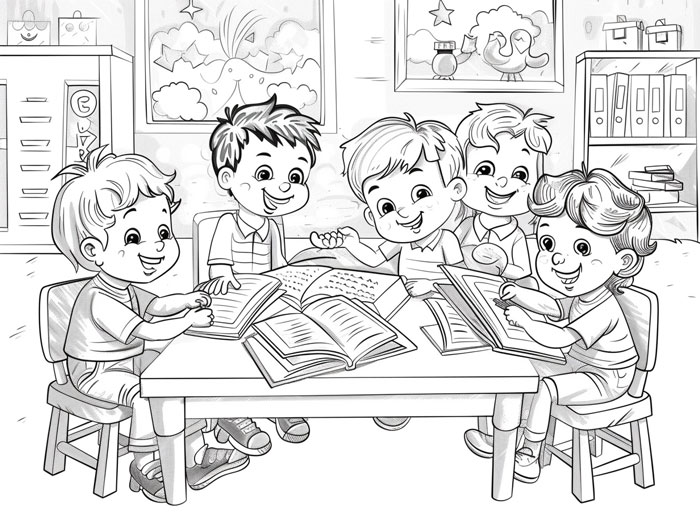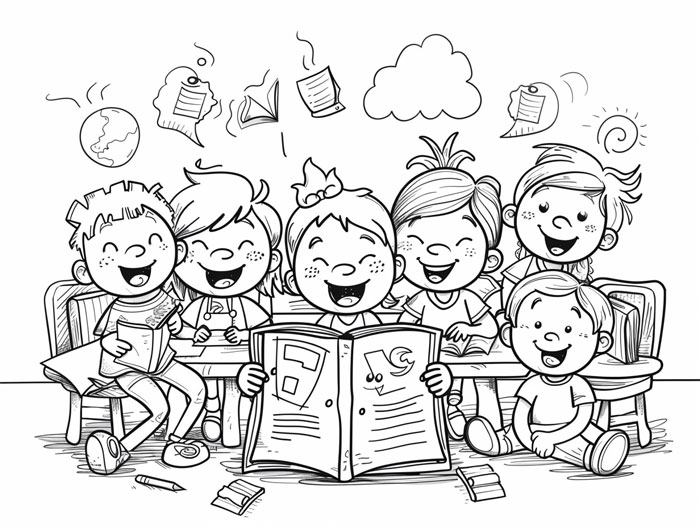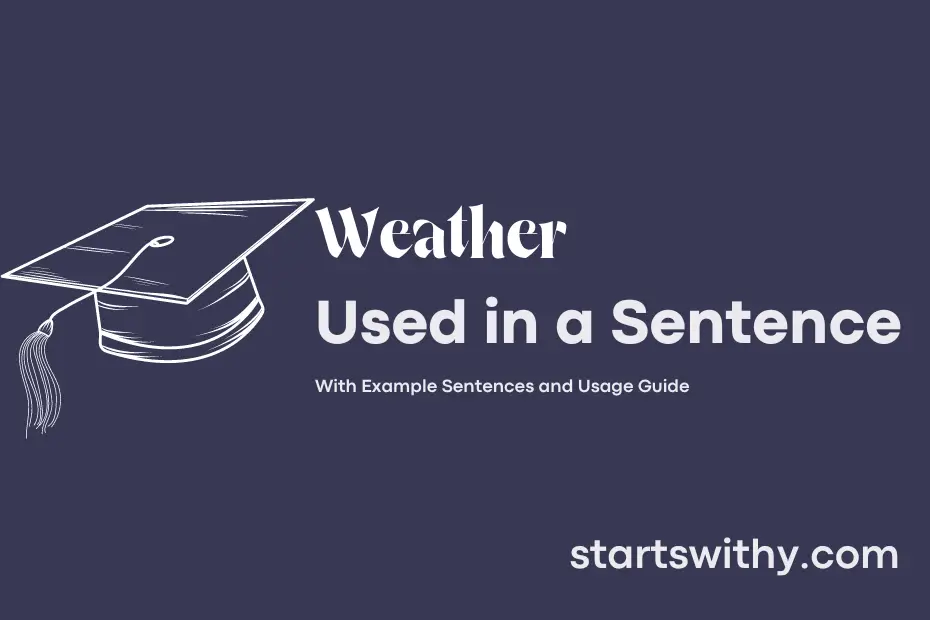Weather is the atmospheric conditions of a specific place at a certain time, encompassing factors like temperature, precipitation, and wind. Understanding weather patterns can help predict upcoming events and plan activities accordingly.
Meteorologists use a variety of tools and methods to study weather phenomena, providing forecasts and warnings to keep the public informed and safe. By analyzing data and observing patterns, experts can offer valuable insights into the constantly changing weather conditions.
7 Examples Of Weather Used In a Sentence For Kids
- Weather can be sunny, rainy, or windy.
- We can play outside when the weather is nice.
- We need to wear warm clothes in cold weather.
- The weather changes throughout the year.
- Let’s check the weather forecast before going out.
- Weather affects how we dress and what activities we can do.
- The weather can sometimes be unpredictable.

14 Sentences with Weather Examples
- Weather in India can vary greatly from region to region.
- It is important to check the weather forecast before planning any outdoor activities.
- Heavy rain and thunderstorms are common during the monsoon weather season.
- Hot and dry weather during the summer can make it difficult to concentrate on studies.
- Weather can affect transportation, so it’s always good to have a backup plan.
- Winter weather in northern India can be extremely cold, so it’s important to have warm clothing.
- Sudden changes in weather can lead to health issues like colds and flu.
- Weather conditions can impact agriculture and the economy in India.
- Planning a trip during the monsoon weather season can be risky due to heavy rain and flooding.
- Staying informed about the weather can help students prepare for any disruptions in their daily routine.
- Extreme weather events like cyclones and heatwaves are becoming more common due to climate change.
- The weather can affect energy consumption, especially during extreme temperature fluctuations.
- Some college campuses may experience flooding during heavy weather conditions.
- Proper clothing and footwear are essential to stay comfortable during unpredictable weather in India.

How To Use Weather in Sentences?
Weather can be used in a sentence to talk about the conditions outside. For example, “The weather today is sunny and warm.” In this sentence, weather is the main subject being discussed.
You can use the word weather at the beginning, middle, or end of a sentence. Just make sure that it makes sense within the context of what you are trying to communicate.
To use weather in a sentence, you can describe it using different adjectives such as “sunny”, “cloudy”, “rainy”, or “windy”. For instance, “The weather forecast predicts heavy rain tomorrow.”

When using weather in a sentence, it’s important to consider the tense of the sentence. For example, if you are talking about weather that has already happened, you would say, “The weather yesterday was cold.”
You can also include weather in a sentence when making plans or discussing how it affects your activities. For instance, “We might have to cancel our picnic if the weather turns stormy.”
Overall, using weather in a sentence is a great way to communicate about the atmospheric conditions and how they impact our daily lives.
Conclusion
In conclusion, sentences with weather describe the conditions of the atmosphere at a particular time and place. These sentences convey information about temperature, precipitation, wind speed, and other meteorological factors. By using weather sentences, individuals can effectively communicate about the climate and its impact on daily activities, such as dressing appropriately, planning events, or practicing safety measures.
Weather sentences play a crucial role in enhancing communication and understanding among people. Whether discussing sunny skies, heavy rain, or strong winds, these sentences enable individuals to make informed decisions based on the current weather conditions. By incorporating weather-related sentences in conversations, media reports, and forecasts, individuals can stay informed and prepared for the atmospheric changes ahead.



